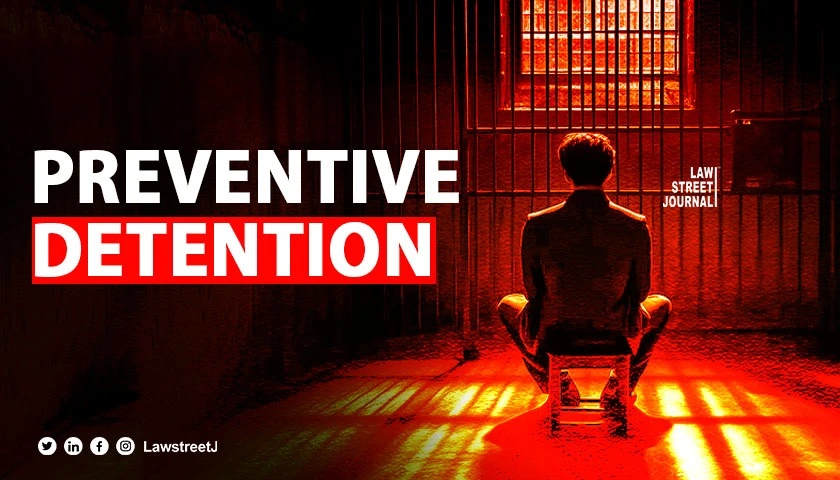Jammu: The Jammu and Kashmir and Ladakh High Court has upheld a preventive detention order, reaffirming that such detention can be ordered regardless of ongoing or concluded criminal proceedings.
Justice Javed Iqbal Wani heard a petition challenging a detention order passed under the J&K Public Safety Act, 1978. The court dismissed the petition, upholding the validity of the detention order.
The court emphasized that preventive detention serves a distinct purpose from punitive measures in criminal law, stating:
“An order of preventive detention may be made before, during, or after a criminal prosecution, inasmuch as it can be made with or without prosecution and in anticipation of or after discharge or even acquittal of a person. Thus, the pendency of prosecution is no bar to the passing of an order of detention.”
The court rejected multiple grounds of challenge raised by the petitioner, including the detainee not being informed about making representations to the Detaining Authority, non-consideration of a representation submitted by the petitioner’s mother, detention based solely on involvement in a single FIR, reliance on a non-existent complaint (Istghasa), and the reference to “law and order” instead of “public order” in the detention grounds.
Addressing these challenges, the court observed:
“Involvement of a person in a criminal case or the registration of an FIR is not imperative for detaining a person under preventive detention, as preventive detention in law has been held to be preventive and not punitive in nature.”
On the distinction between “law and order” and “public order,” the court noted:
“The Detaining Authority has been aware of the provisions of Section 8 of the Act of 1978, inasmuch as the power vested in it authorizes the Detaining Authority to detain a person under the provisions of the Act upon assuming subjective satisfaction that the person’s activities are either prejudicial to the security of the State or public order.”
The court also highlighted the limited scope for judicial review in such cases, citing the Supreme Court’s observation in State of Bombay vs. Atma Ram Shridhar Vaidya:
“Looking into the subjective satisfaction of the Detaining Authority is extremely limited, and a court, while examining a case of preventive detention, would not act as a court of appeal and find fault with the subjective satisfaction arrived at by the Detaining Authority for detaining a person.”
In conclusion, while dismissing the petition and upholding the detention order, the High Court reaffirmed the distinct nature and purpose of preventive detention within the legal framework, emphasizing its validity regardless of the status of criminal proceedings.



![High Court of J&K and Ladakh clarifies dress code rules for Advocates, dismisses domestic violence petition [Read Order]](/secure/uploads/2024/12/lj_1748_Women_lawyers_cant_appear_before_court_with_face_covered.jpg)
![Jammu & Kashmir High Court limits scope of Judicial Review in Tender disputes [Read Judgment]](/secure/uploads/2025/01/lj_8309_0f418c46-349d-4866-907b-bcd34c9236a3.jpg)
![Jammu & Kashmir and Ladakh High Court rules Section 27 statements insufficient to prove knowledge in NDPS cases [Read Order]](/secure/uploads/2025/02/lj_9406_Jammu_&_Kashmir_and_Ladakh.webp)






